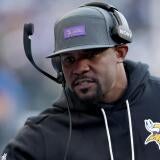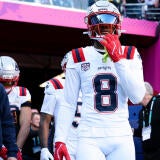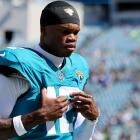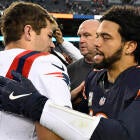Agent's Take: Kirk Cousins, Le'Veon Bell headline top 10 NFL free agents for 2017
This year's market features premium players at a wide range of positions

Offseason moves are going to take center stage over the coming weeks. NFL teams will attempt to keep their best players headed toward free agency. Most players won't be in a rush to re-sign, even if remaining with their own teams is the preference. Testing the market becomes more appealing after risking injury and poor performance for an entire season.
The exclusive negotiating rights period that teams have with their impending free agents ends March 7. That's when NFL teams are allowed to negotiate with the agents of prospective unrestricted free agents during a two-day period ending at 3:59:59 p.m. ET March 9. Players can't sign deals with new clubs until the 2017 league year and free agency officially begin at 4 p.m. ET. A player's ability to re-sign with his current club is allowed during this period.
Here's a look at 10 of the best potential unrestricted free agents (i.e., players with expiring contracts). Some of the players could be taken off the open market by receiving franchise tags before the two-week designation period ends March 1.
Kirk Cousins, QB, Redskins
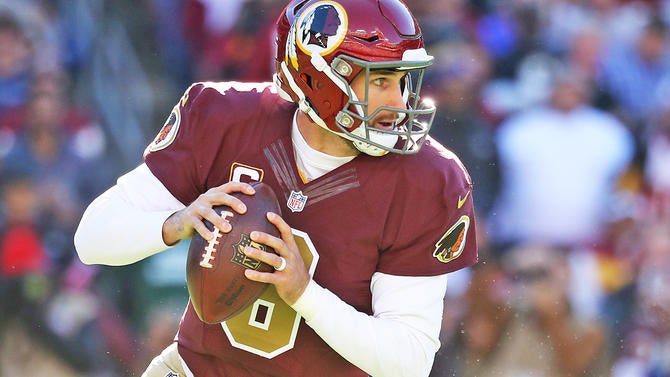
Good, healthy quarterbacks in their prime are rarely available. Most are given new deals before the start of the season in their contract year. Those that play out their contracts are usually franchised but reach an agreement before the July 15 deadline for franchise players to sign long-term deals.
Cousins bet on himself. He played the 2016 season on a $19.953 million franchise tag after the Redskins were unwilling to sign him to a contract paying him as an above-average starting quarterback. The Redskins had reservations because of his limited track record. Washington's reported best offer was $16 million per year with $24 million in guarantees.
An improved Cousins shattered the Redskins' single-season record for passing yards he set in 2015 by throwing for 4,917 yards in 2016. Over the past two seasons, Cousins has been one of the NFL's most productive quarterbacks statistically. He has completed 68.9 percent of his passes for 9,083 yards with 54 touchdowns and 23 interceptions to post a 99.3 passer rating. Cousins has the NFL's third-best completion percentage and is fourth in the NFL in passing yards, sixth in passer rating and 12th in touchdown passes since the start of the 2015 season. Surprisingly, Cousins and Tom Brady are the only two quarterbacks to win Player of the Month honors in each of the past two seasons.
Cousins will be looking for a deal in the same ballpark as the five-year extension Andrew Luck received from the Colts last offseason, which reset the NFL pay scale. Luck's contract averages $24.594 million per year and contains $87 million in guarantees, of which $47 million was fully guaranteed at signing. The Redskins might balk at these numbers after Cousins didn't play his best football at the end of the season, which helped keep the team out of the postseason after it had controlled its playoff destiny.
A second franchise tag at $23,943,600, a 20 percent increase over Cousins' 2016 number, could be in order. A tag-and-trade to the 49ers isn't out of the question. New 49ers head coach Kyle Shanahan developed a strong affinity for Cousins while serving as the Redskins' offensive coordinator during the quarterback's first two seasons in the NFL.
Le'Veon Bell, RB, Steelers
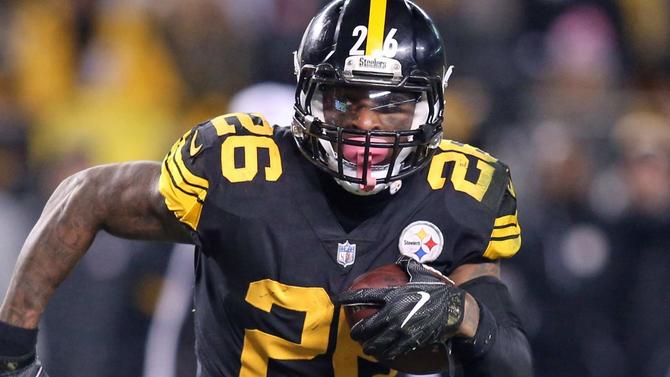
Bell solidified himself as the NFL's best dual-threat running back in 2016. The 2013 second-round pick became the first player in NFL history to average at least 100 rushing yards per game (105.7) and 50 receiving yards per game (51.3) for a season. Bell elevated his play in the postseason. He rushed for 337 yards in Pittsburgh's first two playoff games before being limited to 11 plays in the AFC Championship Game with a groin injury.
Bell is going to be a litmus test for running back salaries. There probably won't be any $10 million-per-year running backs left in the NFL to help Bell's market because the Vikings aren't expected to pick up Adrian Peterson's $18 million option for the 2017 season. Reports indicate that the Steelers will use a franchise tag on Bell. Assuming the 2017 salary cap is set at $168 million, which is in line with the NFL's preliminary projections, Bell's franchise tag should be $12.377 million.
Eric Berry, S, Chiefs
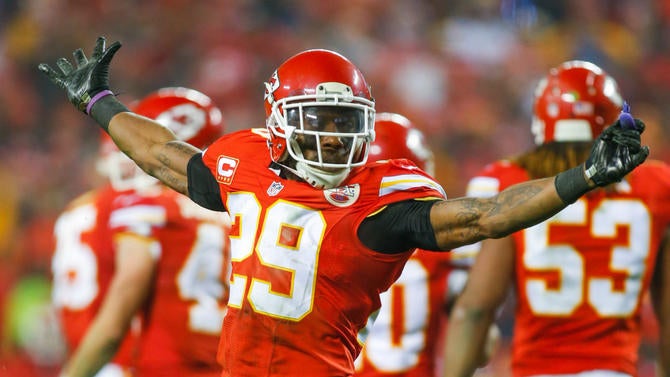
Berry wants to remain in Kansas City but recently stated he isn't going to play under a franchise tag again. He sat out most of the preseason before finally signing his franchise tender in late August. A second franchise tag for Berry will be $12,967,200, which is 120 percent of his $10.806 million 2016 franchise tender.
The expectation was the five-year, $51.25 million extension Harrison Smith signed with the Vikings last June would pave the way for a deal with Berry. Tyrann Mathieu's subsequent five-year extension with the Cardinals averaging $12.5 million per year after negotiations broke off will be a hurdle to signing Berry long term. Berry's camp will view Mathieu's contract as the new benchmark for safeties over Smith's instead of as a hybrid defensive back deal. Being the lone safety to earn first-team All-Pro honors in each of the past two seasons only helps Berry's cause.
Chandler Jones, DE/OLB, Cardinals
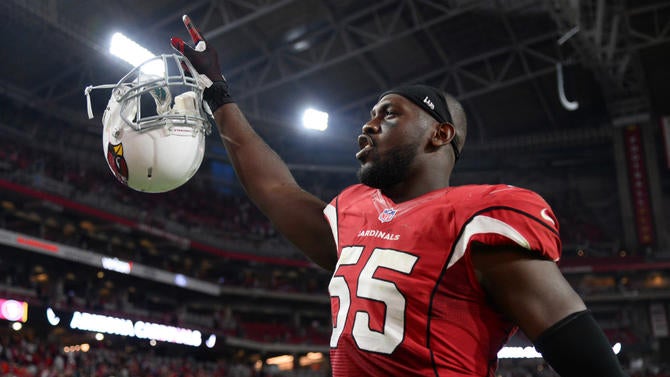
The Cardinals thought they were getting the franchise's best edge rusher since Simeon Rice when Jones was acquired from the Patriots in a March 2016 trade. Jones didn't disappoint. His pass rushing ability didn't suffer while adapting to a different defensive scheme. Jones tied for eighth in the NFL with 11 sacks. Since Jones is Arizona's top free-agent priority, a franchise tag is likely if a long-term deal can't be worked out before the March 1 designation deadline.
Fortunately for Arizona, the lower linebacker number will apply to Jones instead of the defensive end figure. The linebacker franchise tag should be $14.754 million with a $168 million salary cap, which will be almost $2 million less than the defensive end tag. Jones has put himself in line to get a deal comparable to the five-year, $85 million contract with $52.5 million in guarantees that Olivier Vernon received from the Giants as a free agent last offseason.
Kawann Short, DT, Panthers

Short was expected to be the beneficiary of the Panthers rescinding Josh Norman's franchise tag in the days leading up to the 2016 NFL Draft. He didn't sign an extension because general manager Dave Gettleman was uncomfortable paying the going rate for pass rushing interior defensive lineman established by Fletcher Cox and Muhammad Wilkerson, which is $50 million to $60 million in guarantees on a deal averaging more than $17 million per year.
Short's 2016 performance wasn't quite on the same level as his 2015 breakout campaign, in which he tied for the NFL lead among interior defensive linemen with 11 sacks. According to Pro Football Focus (PFF), Short had 49 quarterback pressures (combined sacks, quarterback hurries and quarterback hits) last season. He pressured quarterbacks 68 times in 2015.
This makes Short a prime candidate for a franchise tag. The defensive tackle number provides Gettleman tremendous value relative to the marketplace. If the 2017 salary cap isn't above $169.8 million, the defensive tackle franchise tag should be below the $13.615 million 2016 number.
Dont'a Hightower, LB, Patriots
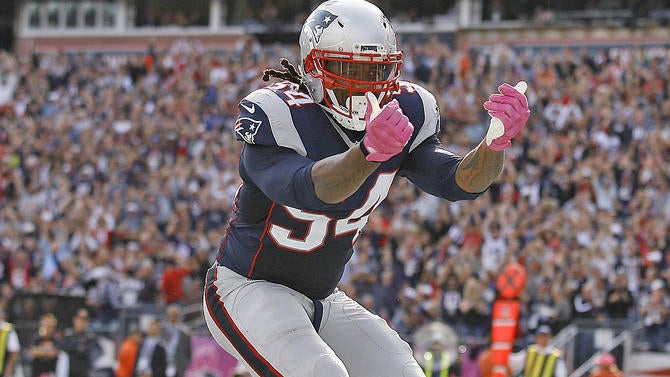
Dealing Jamie Collins to the Browns as the Nov. 1 trading deadline approached was a surprising move that should have increased Hightower's contract leverage and created more urgency for New England to retain him. But the trade could indirectly result in Hightower leaving the Patriots.
Collins just signed a four-year deal averaging $12.5 million per year with $26.4 million fully guaranteed to remain in Cleveland. It's going to be hard for the Patriots to justify to Hightower that he should take less than the linebacker they traded away.
Alshon Jeffery, WR, Bears
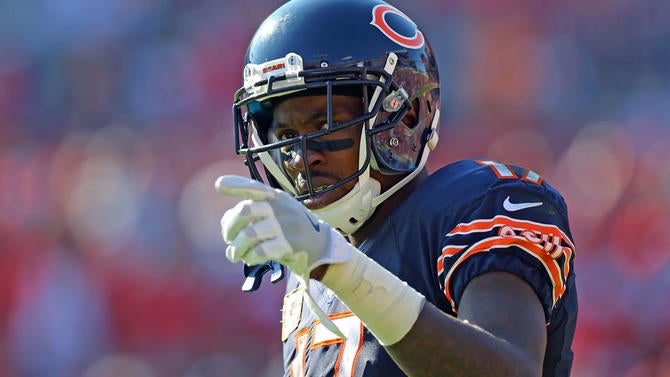
Jeffery had a contract year to forget. He served a four-game suspension without pay for violating the NFL's performance-enhancing drugs policy. During the 12 games Jeffery played, he seemed like an afterthought in Chicago's passing game at times because he never quite got in sync with the rotating cast of quarterbacks that were a byproduct of Chicago's injuries.
Jeffery played the 2016 season on his $14.599 million franchise tag because the Bears were unwilling to give him a contract comparable to those owned by Dez Bryant, Demaryius Thomas, Julio Jones and A.J. Green. These deals, which were signed in 2015, average between $14 million and $15 million per year. With the exception of Green, the players received between $43.5 million and $47 million of guarantees in their contracts. Jeffery was one of the game's best wide receivers in 2015 when he wasn't plagued by nagging leg injuries that limited him to nine games.
Franchising Jeffery again will cost the Bears $17,518,800. After demonstrating he could thrive as a No. 1 wide receiver who is the focal concern of defenses when healthy in 2015, it wouldn't be a surprise if some team in free agency made the big financial commitment Jeffery has been seeking.
Brandon Williams, DT, Ravens
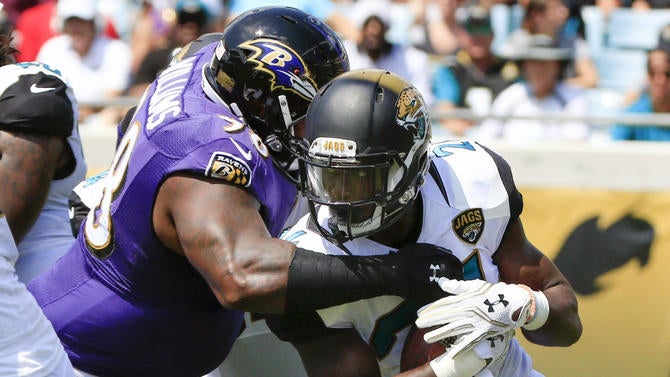
Williams is the premier run-stuffing interior defensive lineman with an expiring contract heading to the market. He should be the biggest beneficiary of defensive tackle Damon Harrison, a 2016 free-agent signee, doing wonders for the Giants' run defense last season. Harrison joined a defense that gave up 121.4 yards per game (24th in the NFL) on the ground in 2015. With Harrison anchoring the defense, the Giants limited the opposition to 88.6 rushing yards per game last season to tie for third best in the NFL.
Harrison's five year, $46.25 million deal containing $24 million of guarantees should be Williams' salary floor with a team looking for him to make a similar impact on their run defense.
Kevin Zeitler, G, Bengals
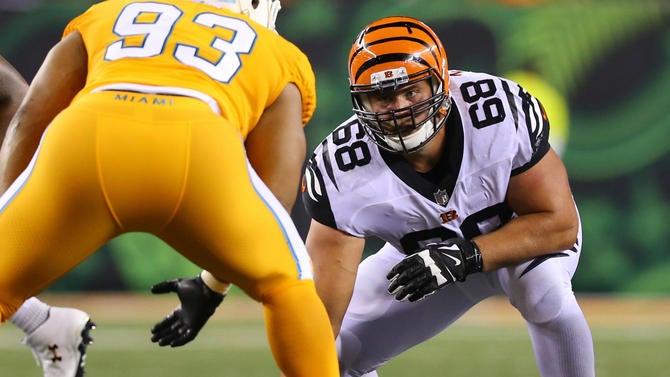
The Bengals are successful in keeping their own players even after they explore the open market.
Kelechi Osemele changed the salary landscape for guards when the Raiders gave him a five-year, $58.5 million contract (worth a maximum of $60 million through incentives) with $25.4 million fully guaranteed in free agency last year.
Other guards already benefiting from a ripple effect of Osemele's contract could make Zeitler tough to re-sign. David DeCastro and Kyle Long received extensions averaging $10 million per year as the start of the regular season approached. Zeitler could be in line for more money than these two on the open market.
A.J. Bouye, CB, Texans
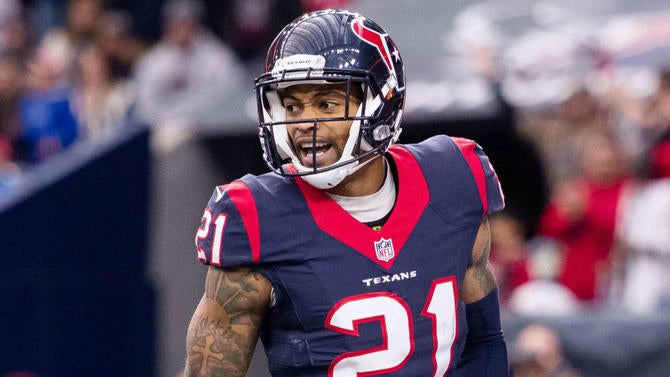
Bouye came out of nowhere to develop into one of the NFL's better cornerbacks this past season. Opposing quarterbacks completed 51.1 percent of passes when targeting him for a 59.5 passer rating, according to PFF.
The entire NFL whiffed on the undrafted free agent, who played the season on a $1.671 million restricted free-agent tender. He could have been signed to an offer sheet that would have only given the Texans matching rights for a lot less than Robert Alford's late-season four-year, $38 million extension with the Falcons containing $21 million in guarantees that set the No. 2 cornerback market.
Other top free agents: Martellus Bennett, TE, Patriots; Calais Campbell, DE, Cardinals; Melvin Ingram, LB, Chargers; Trumaine Johnson, CB, Rams; Jason Pierre Paul, DE, Giants

